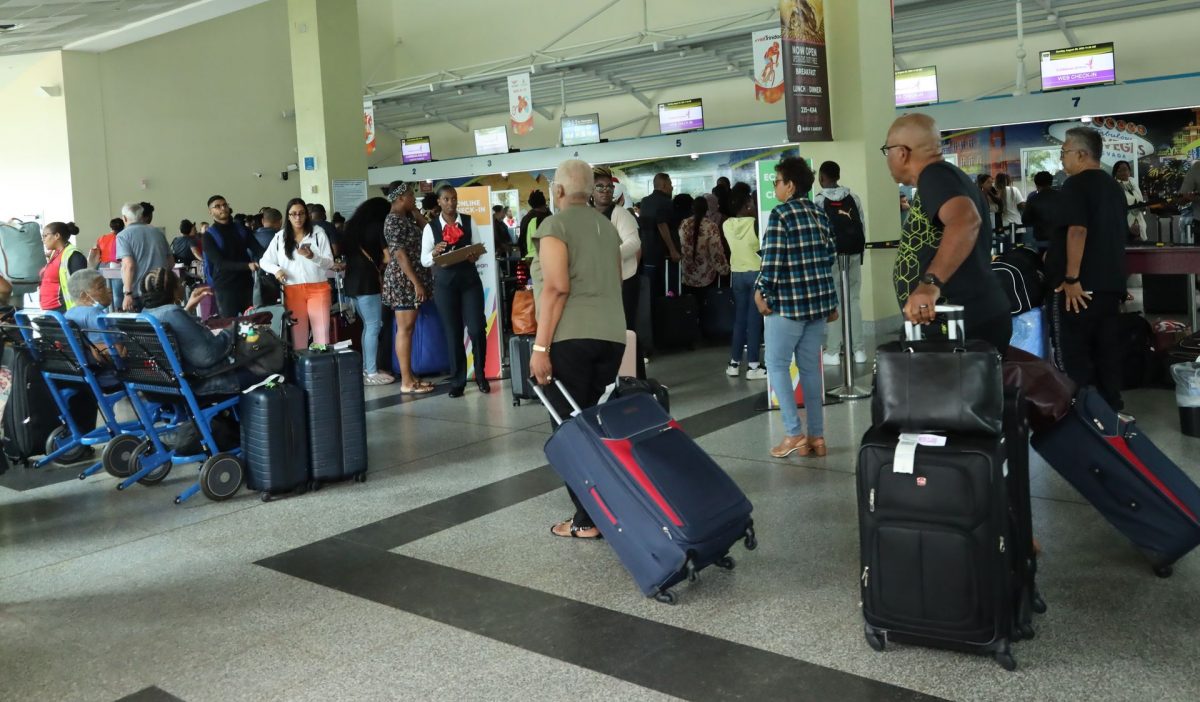(Trinidad Guardian) Caribbean Airlines (CAL) and the Trinidad and Tobago Airline Pilots Association (TTALPA) are at loggerheads as negotiations over pay and benefits have come to an apparent standstill.
The airline’s offer of a 7 ½ per cent pay increase over five years (2015-2020), coupled with a shift from a monthly to an hourly payment system, is being resisted by the pilots.
CAL’s proposed increase falls significantly short of the pilots’ demands, fuelling discontent among TTALPA’s members.
Guardian Media understands that on August 4, 2023, in response to CAL’s first offer, the association counter-proposed 0 per cent, 4 per cent, 4 per cent, 4 per cent and 1 per cent for the bargaining period. However, on August 15, 2023, CAL stuck to its previously tabled 0 per cent, 2.5 per cent, 2.5 per cent, 2.5 per cent and 0 per cent to cover the five-year period.
In its explanation for its stance, the state-owned airline agreed to facilitate a five-year agreement but indicated that its initial proposal of a five per cent lump sum for 2018 to 2019 (year 3) considered increases that had already been applied, as well as the company’s financial position.
CAL also informed TTALPA of its intention to consider the increases during that period once the association agreed to the removal of Clause V of Article 17 from the current Collective Agreement. This clause gives pilots the option to continue employment with the airline under the same terms and conditions until age 65, or retire immediately with full pension benefits. However, Guardian Media understands this matter is already before the Industrial Court.
Additionally, CAL proposed to transition from a monthly salary system to an hourly rate payment structure across all fleets, coupled with a reduction in the minimum work guarantee from 75 to 60 hours (about 2 and a half days). Instead, the company suggested that overtime rates be applied after 75 hours (about 3 days).
TTALPA, in its response on August 18, 2023, indicated to the company that its proposal erodes the basic salary benefit of “the professional pilots”, since its suggestion effectively meant a 20 per cent proposed reduction in their current monthly salaries.
TTALPA instead made a reduced counteroffer of 0 per cent, 3 per cent, 3 per cent, 3 per cent and 1 per cent in the hope of closing the negotiations.
According to information on the pilots’ pay structure obtained by Guardian Media, a jet or ATR captain starts off with a salary between $46,000 to $56,000, while the ranges for a jet or ATR first officer are from $26,000 to $31,000 in the first year of employment and increases over a 15-year period.
The proposed reduction in salaries by CAL is said to have caused distress among the pilots, who noted agreeing to a 57 per cent salary cut in 2020 for a three-month period to support the airline with its cost cutting measures amid the COVID-19 pandemic. TTALPA at that time had 149 members. Currently, it represents 200 of CAL’s 217 pilots.
After 54 pilots reported sick on Sunday, causing 56 of its 84 scheduled flights to be cancelled, CAL applied for an injunction in the Industrial Court, arguing that the high absenteeism coincided with the height of negotiations and noted that section 67 (2) of Industrial Relations act prohibits them from taking industrial action. The court granted the ex-parte injunction on Monday morning, after TTALPA said it needed time to defend the claims, although it denied orchestrating the action. The association was ordered to instruct its members to report for work once they were medically fit.
There were 7,368 passengers carded to fly on Sunday. CAL has been operating recovery flights parallel to its scheduled flights since then. It expects to return to normal operations by today, a release said yesterday.

